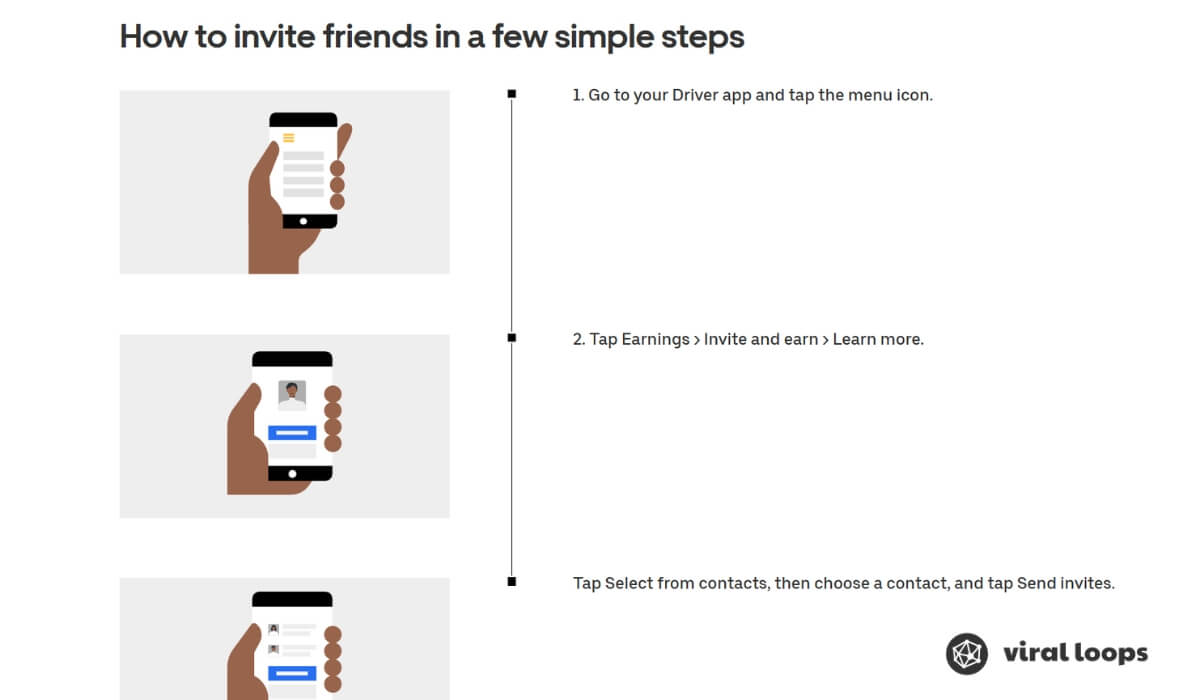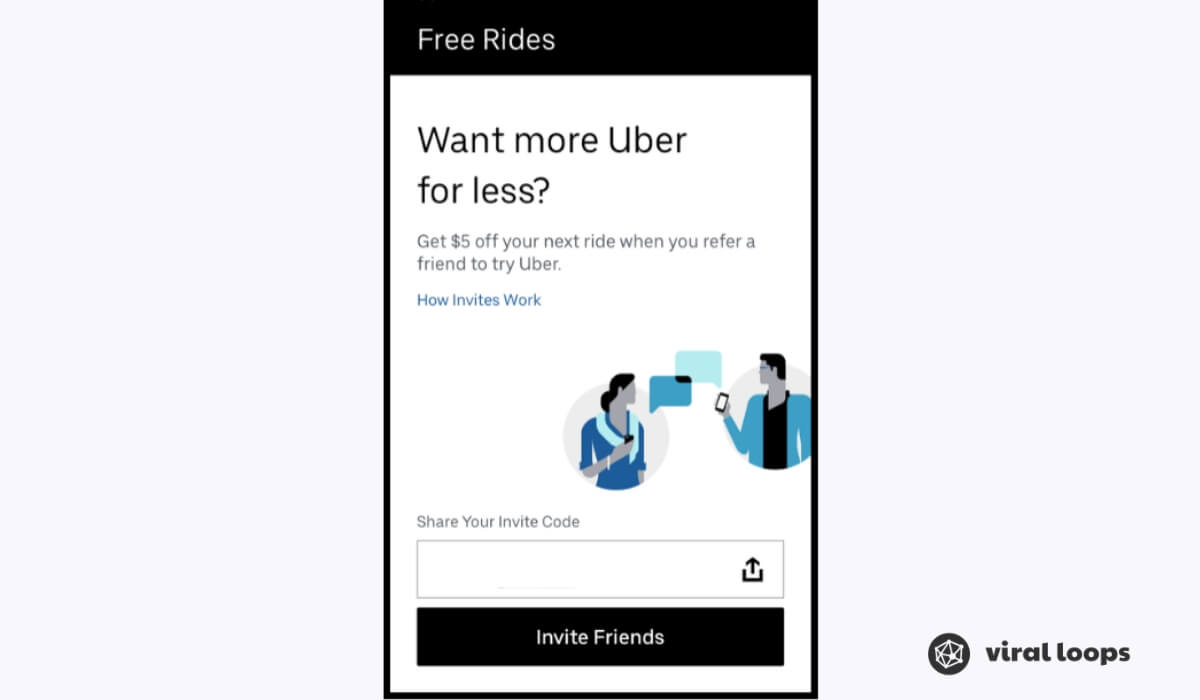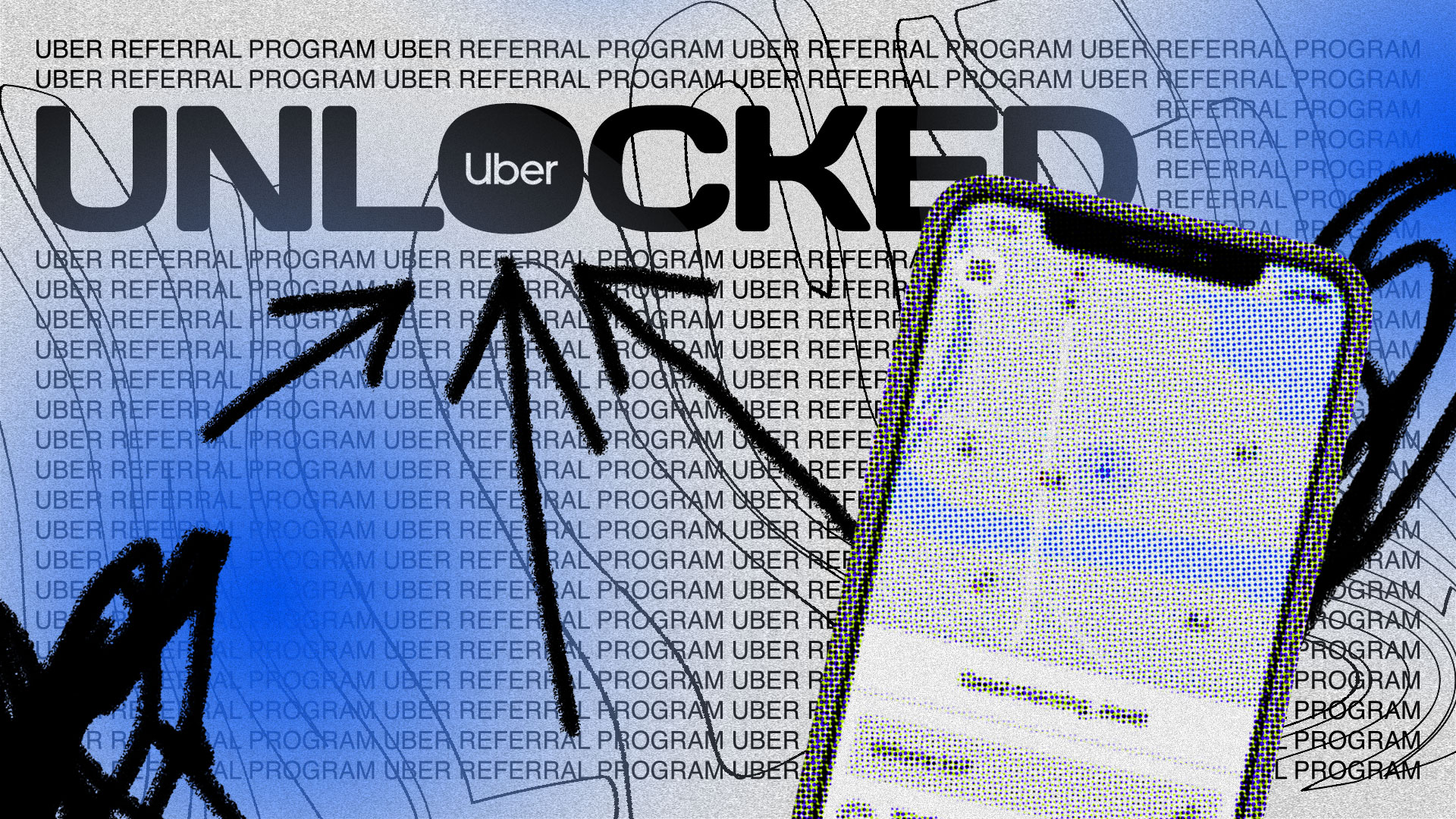The Uber referral program is one of modern businesses’ most successful growth strategies. Through the Uber app, existing riders can refer friends with a simple referral code, earning rewards while new subscribers enjoy their first ride free.
This innovative approach extends to driver acquisition—experienced drivers for Uber referring new drivers through the driver app, creating a sustainable growth cycle. The number of trips multiplied exponentially as more interested clients signed up through referrals, transforming how people think about ride-sharing.
Backed by $24.7B in funding, Uber’s referral system didn’t just connect friends with the service; it built entire communities of loyal customers. The results speak for themselves: Uber referrals became the gold standard for viral growth, demonstrating how a well-designed referral program can turn everyday users into powerful brand advocates.
This remarkable success story begins with understanding a fundamental urban challenge that Uber set out to solve.
The Problem Uber Solved
In major cities worldwide, the traditional taxi system left countless frustrated passengers stranded. Uber’s solution wasn’t just about creating an app—it was about building trust through community.
When existing riders could refer friends and offer them a free ride, it solved two critical problems: validating the service’s reliability and reducing the uncertainty of first-time subscribers. The app for Uber transformed skeptical newcomers into loyal customers who, in turn, became eager to share their own referral code.
The referral program proved equally powerful for driver acquisition. New drivers joining through referring drivers found immediate access to a steady number of trips, while the driver app simplified the entire onboarding process.
As interested drivers signed up, Uber’s network grew stronger, ensuring shorter wait times and better coverage.
This two-sided approach created a self-sustaining ecosystem where Uber drivers and riders could gain rewards through the Uber referral program. The referral program didn’t just connect people to rides; it connected communities to opportunities, making each referral a building block of trust.
However, the true measure of this innovative solution lies in its remarkable return on investment.
Measuring Success: The ROI of Uber’s Referral Program
Understanding the financial impact of Uber’s referral strategy reveals why it became the blueprint for digital growth.
With each new subscriber bringing in more riders and every driver expanding the network, the program’s success can be measured in hard numbers.
We can uncover the mathematical precision behind this viral growth phenomenon through careful analysis of patron behavior, spending patterns, and long-term engagement.
The Fundamentals of Growth
The success of Uber referrals extends far beyond just counting trips.
When friends sign up through the referral program, they show a 25% higher lifetime value than customers who discover the app through other channels, such as Facebook.
This amazing difference begins with the trust inherent in personal recommendations.
Breaking Down the Numbers
The average Uber driver completes rides worth $17 each, with clients typically taking two trips monthly. For instance, a customer’s annual value reaches $408, with the referral program enhancing this figure significantly. New patrons often start their journey with a free ride, but the number of trips they take increases steadily over time, creating sustained revenue growth.
The Investment-Return Equation
Uber’s gross margin is around 20%, and there are some leaked data showing that the average Uber user stays for around four years.
When existing clients refer a friend, both parties receive rewards—typically $20 each. While this $40 total investment might seem substantial, the math tells a compelling story.

By inserting these numbers in the formulas presented above, we have:
- LTV= $408 x 0.20 × 4 × 1.25= $408
- CAC= $40 – ($34 x 0.20)= $33.2
- LTV:CAC= 12.28:1
So consider this: even after subtracting the initial money spent on rewards, Uber’s referral program generates a remarkable 12x return on investment!
Long-Term Value Creation
The driver app similarly leverages referrals to expand Uber’s network efficiently. Every successful sign-up creates a ripple effect—new drivers bring their own communities, leading to more rides and deeper market penetration. This self-perpetuating growth engine demonstrates why the Uber referral program became the gold standard for digital marketplaces.
With such impressive returns established, it’s crucial to understand how Uber engineered this success through their dual-sided approach to referral rewards.
The Dual Referral Program Structure
The brilliance of Uber’s growth strategy lies in its two-pronged approach to referrals.
Uber engineered a perfect growth loop where each side reinforces the other by creating distinct yet complementary programs for both drivers and riders. This dual structure wasn’t just innovative—it was necessary for building the robust marketplace that would transform urban transportation.
Understanding how these two programs work together reveals the true genius of Uber’s approach.
Driver Referral Program
Uber’s approach to driver acquisition demonstrates the power of community-driven growth. Through the driver app, existing drivers can generate a unique code to refer other drivers, earning substantial rewards for successful referrals.

For example, in high-demand markets, referring drivers get paid up to $1,000 when their referral completes a specified number of trips. This strategic investment ensures consistent service quality while expanding the network.
The program’s sophistication lies in its regional customization. Each market has tailored incentives based on driver demand, and referral progress is clearly tracked through the app.
When a newly hired driver signs up, they create an account and enter their referrer’s code, establishing a transparent connection that benefits both parties. This system has proven particularly effective in competitive markets where multiple ride-sharing services vie for driver attention.
Rider Referral Program
The rider component of Uber referrals focuses on turning each satisfied customer into a brand ambassador. When friends share their first ride experience on FB or through direct contact, they’re not just sharing a service—they’re sharing a solution.
The program makes it simple: existing customers can refer a person through the app, offering them money off their initial trip while earning rewards for themselves.
This approach creates a natural conversation starter about Uber, transforming casual recommendations into trackable growth metrics. The refer-a-friend feature is prominently displayed within the app, making it effortless for satisfied riders to share their positive experiences.

Each successful referral not only brings in new customers but typically results in multiple future trips, creating a compound effect on growth.
By maintaining this dual-focused structure, the Uber referral program has created a self-reinforcing ecosystem where growth on one side naturally stimulates expansion on the other. This balanced approach to marketplace development provides valuable lessons for businesses looking to implement their own referral strategies.
Implementation Guide: Building a Similar Referral Program
The success of Uber referrals provides a blueprint for businesses aiming to build their own viral growth engine.
While each company’s referral program needs customization, the core principles behind Uber’s approach—from reward structures to client experience—offer valuable insights.
By examining these elements, we can understand how to implement a powerful refer-a-friend system that drives sustainable growth.
- Building the Foundation
Start with a clear value proposition for both sides.
For example, when a customer creates an account and enters a referral code, both parties should receive meaningful rewards. Whether it’s money off their first ride or earning credit for future trips, the incentive must be compelling enough to drive action but sustainable for long-term growth.
- Creating the Experience
Design your app’s referral interface for maximum visibility and ease of use.
Like the app for Uber drivers and main platform, make sharing on Facebook or direct contact seamless. Track the number of trips or purchases that result from each referral, ensuring that clients get their referral rewards promptly and can easily sign friends up for the service.
- Managing Growth
Monitor program performance through key metrics: cost per referral, conversion rates, and user engagement.
The Uber referral program succeeded because it continuously optimized these elements, adjusting referral rewards based on market conditions while maintaining profitability.
Key Takeaways and Future Implications
The success of Uber referrals demonstrates that true growth comes from simplicity and value. Whether through the driver app or customer interface, subscribers can tap to share their code and invite friends across Facebook, Twitter, or direct contact. The past has shown that when friends sign up and complete their first ride, both parties get paid rewards without trouble. For example, the referral bonus page made it easy to track the number of trips generated through each referral.
The Uber referral program proves that successful marketplace growth requires more than just resources—it needs a well-designed account system where every customer interaction creates value. By maintaining separate but complementary programs, Uber’s app became a self-sustaining growth engine, turning everyday interactions into opportunities for expansion.
Conclusion
Uber’s referral program transcends traditional marketing strategies, creating a self-sustaining ecosystem of growth. By mastering the delicate balance between driver and rider acquisition while maintaining a 12x ROI, Uber has written the playbook for marketplace expansion.
As the ride-sharing industry continues to evolve, one truth remains constant: well-designed referral programs don’t just drive growth—they build communities that transform industries and redefine what’s possible in the digital age.
